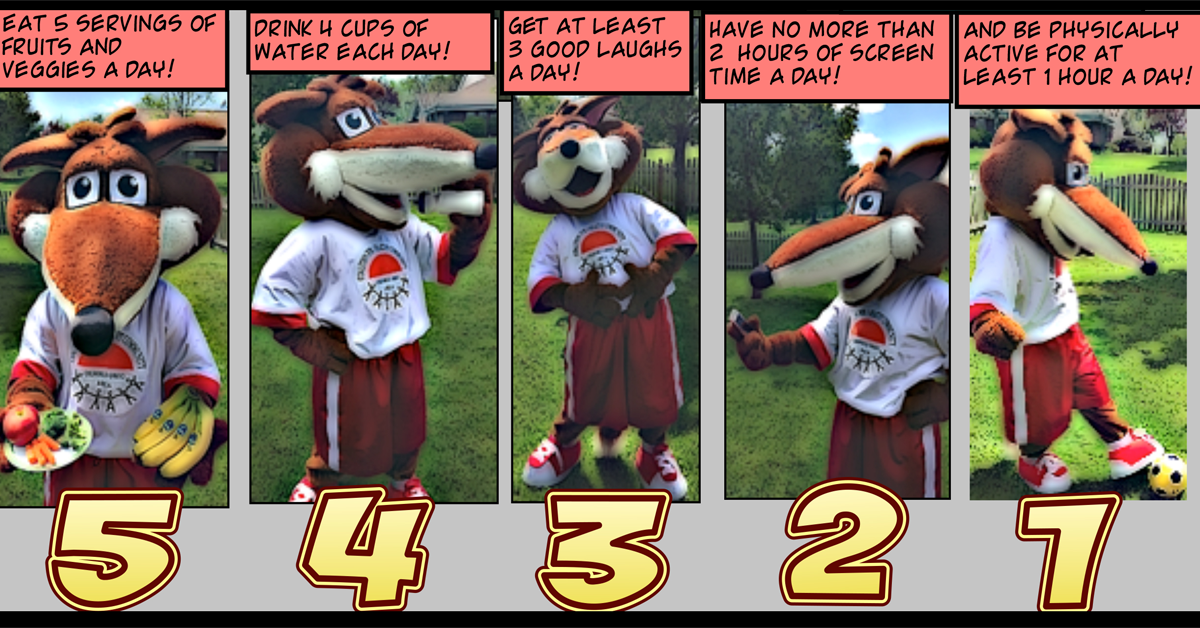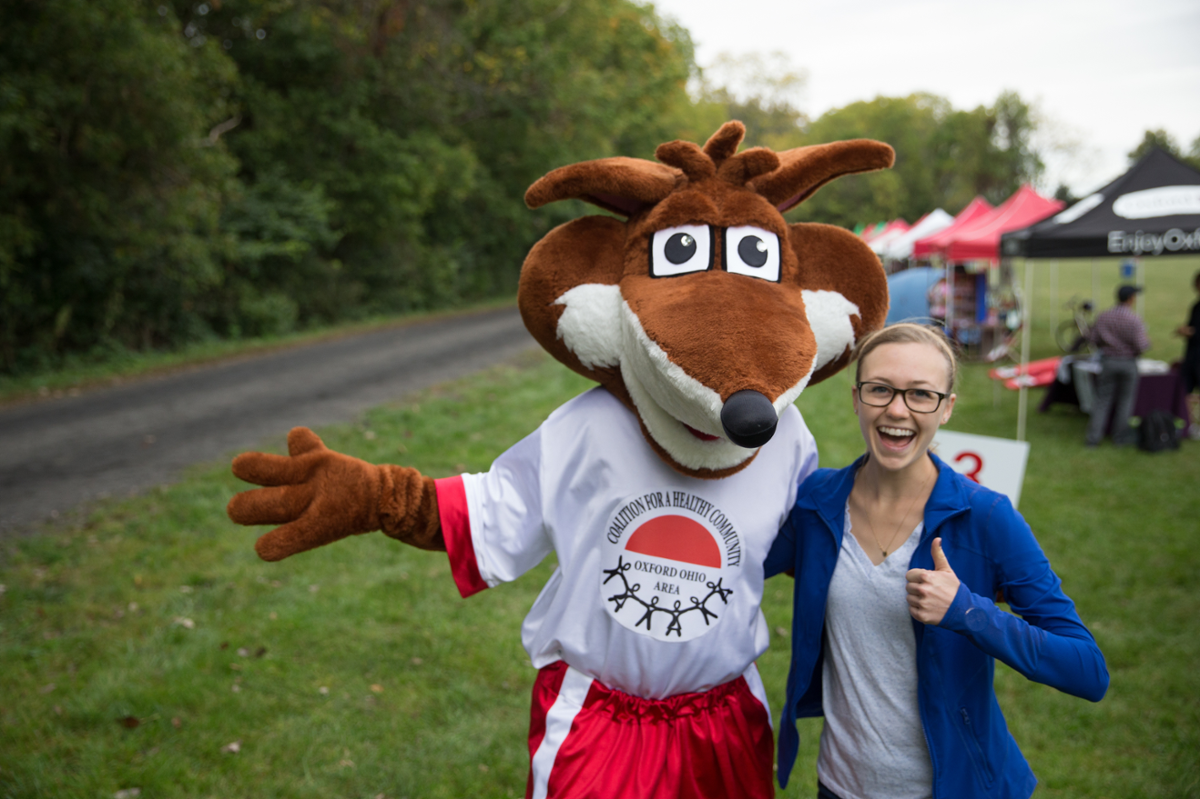New Series of "Rox the Fox" Comic Books Promote Public Health


James M. Loy, Miami University
In the comic books, superheroes can do incredible things. But in many ways, Rox the Fox is even more heroic. Because Rox can help people too. Except he has the power to make a real difference in the lives of real people, right here and right now.
So, it’s fitting that Rox the Fox, Oxford, Ohio’s local mascot for health and wellness, would eventually star in a comic book of his own.
“Rox is geared towards five health messages,” says Paul Branscum, Miami University associate professor of public health. “Eating five servings of fruits and vegetables every day, drinking at least four cups of water, having three good laughs, having no more than two hours of screen time per day, and having at least one hour of physical activity.”
Rox is a champion of this “5-4-3-2-1” approach to healthy living. It’s a message supported by the Coalition for a Healthy Community - Oxford Area, which drives a number of health initiatives across the area.
 And it’s also what Rox himself will promote through a new series of comic books produced in conjunction with the Coalition, the Talawanda School District, and Miami University.
And it’s also what Rox himself will promote through a new series of comic books produced in conjunction with the Coalition, the Talawanda School District, and Miami University.
“This is a very unique way to engage students,” says Amy Macechko, Talawanda School District health
Communication is critical
In the field of public health, effective communication and information dissemination
“It's been very much shown that information alone is not enough to drive behavior change,” Branscum says. “You've got to do things like create healthy
So the goal not only becomes capturing attention.
For public health professions, it can be an involved
But this is precisely the process that Miami students learn through a new public health major now offered as a joint program through the College of Arts and Science and the College of Education, Health and Society, where a focus on health and wellness is a large part of the academic mission.
Alongside effective communication and information dissemination, students also learn how to investigate the behavioral, biological, environmental, and political determinates of health in any given area. And they learn how to develop interventions that target specific conditions, as well as additional strategies for treatment and prevention.
This is all part of what it takes to be a public health professional today.
“We are trained to identify the
A calculated effort
In Oxford, the 5-4-3-2-1 campaign is part of a larger strategic initiative designed to prevent substance abuse, increase mental health, and reduce obesity throughout the region.
“And those areas are not arbitrarily chosen,” Macechko says. “Rather, we work with our local hospital, McCullough-Hyde TriHealth, who is required every three years to complete a community health needs assessment. So their needs assessment has determined that those are the three areas that our community is most concerned about.”
 Around town and across campus, Rox the Fox can often be seen supporting events and conducting activities that address these same issues, and the forthcoming comic books will be another extension of this mission.
Around town and across campus, Rox the Fox can often be seen supporting events and conducting activities that address these same issues, and the forthcoming comic books will be another extension of this mission.
Currently, there are five issues planned, one for each of the 5-4-3-2-1 behaviors. And comics books, as a medium, were also deliberately chosen for several reasons.
Comic books have a long history of being used to increase literacy. “They can expose children to words they might not be familiar with,” Branscum says. “That combination of pictures and words helps build vocabulary.” Plus, Branscum has already had previous experience using comic books for other public health projects.
Then, of course, there is the strong influence that comic book-infused content has on youth, especially considering the extremely popular line of contemporary Marvel toys, TV shows, and movies now permeating the media and pop culture.
Finally, each issue is also being developed using a program called Comic Life, which combines real photos with classic comic book elements. And in this case, it’s become a way to create a personal connection with local students.
“It's actually Talawanda students photographed in these comics, and they were so excited to be a part of this,” says Macechko. “When the comics come out, and they see themselves and see their friends and their peer group, it's going to be a different way of sharing the message. It is going to get them really excited.”
The comic books are being finalized now, and they should be in the hands of students this fall. But the project and the partnership already have the potential to make an impact.
“This is the first time I've worked with an organization who had a mascot, who wanted to develop comics around that mascot, that had healthy messages already,” Branscum says. “So if this launch is successful, and then there's more interest, it’ll get bigger and bigger.”
It’s a launch that will hopefully mark another step toward the kinds of community-wide changes that all public health professionals ultimately hope to see.

